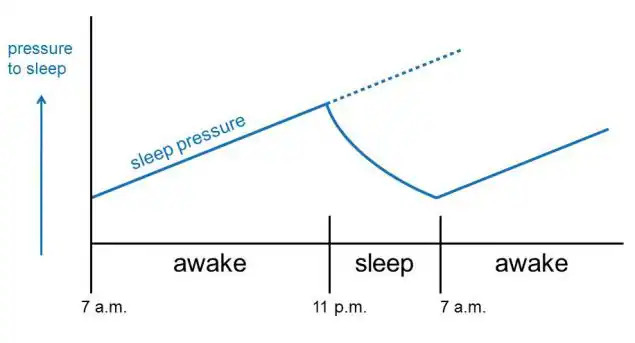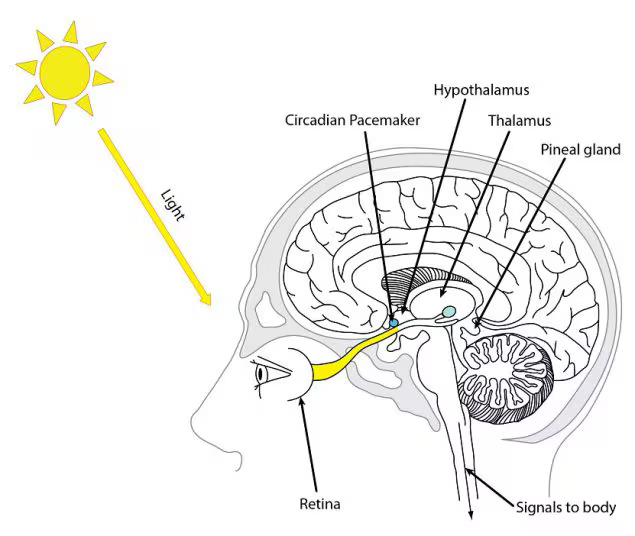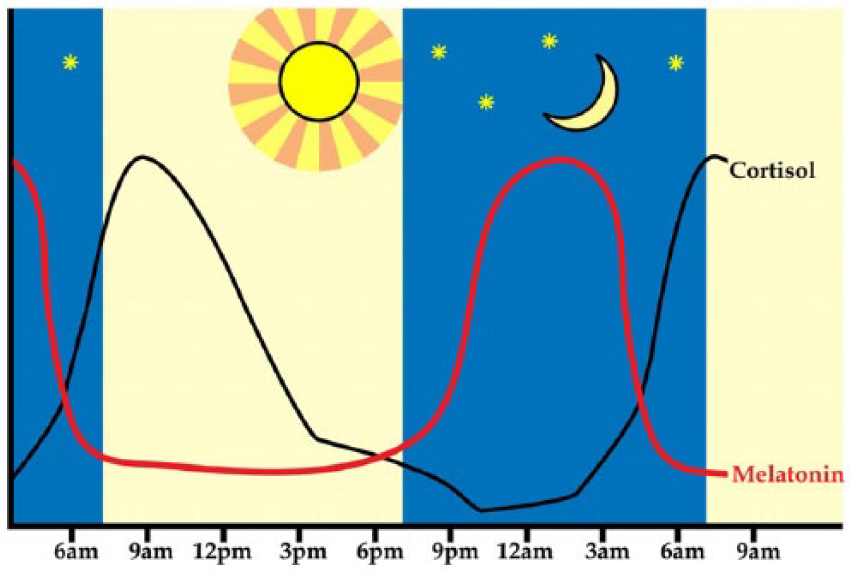The Science behind sleep & weight: what you need to know
Do you feel like you are doing all the right things but can’t budge some of that excess weight? Sleep could be the hidden link.
You may know that sleep plays an important role in brain health; when you are sleeping, your brain does a little clean up, filing important information, throwing out any unneeded trash ready for a new day. But, did you know that sleep also plays a vital role in your overall health and impacts weight regulation?
Moreover, what we currently know is that sleep plays an important role in endocrine function. Our endocrine system is a complex system that uses hormones to control and coordinate your body’s:
Metabolism
Energy level
Reproduction
Growth and development
Response to injury, stress, and mood
As you can see, it is very important for our overall health. And a key system for our body composition – AKA distribution of body weight.
A study in 2005 showed a later bedtime, past midnight and fewer hours of sleep, under 7 hours, results in greater levels of body fat. People who sleep less than 6hrs per night will gain twice the amount of weight over 6 years than people who get 7-8hrs of sleep.
In addition, sleeping less than 6hrs per night will increase the risk of metabolic syndrome causing:
Inflammation
Obesity (disrupting appetite regulation)
Diabetes (impaired blood sugar regulation)
High blood pressure
High cholesterol
Further increasing risk of heart attack, cardiac arrest, and stroke.
Sleep basics
Regulation of sleep is dependant on two things
- Build up of homeostatic sleep drive (sleep pressure)
- Circadian rhythms
These components work together to determine when to go to sleep and when to wake.
Sleep pressure
- Builds up throughout the day – preparing us for bedtime
- We sleep and pressure decreases
- Higher drive for sleep occurs with physically demanding experiences like an intense workout or illness – eg fighting an infection

This image shows the importance of natural light first thing in the morning to reset your biological clock.
Circadian rhythm
- Internal biological clock that regulates timing for sleep in humans
- Activity of clock makes us awake throughout the day and sleepy at night
- Most important function is to regulate the sleep/wake cycle – approx 24 hr period
- Controlled by two rhythms
- Exogenous – external factors, such as environmental cue of morning light
- Endogenous – internal factors – core body temperature – will rise through the day and decrease overnight. These are maintained even if environmental cues are removed
Role of cortisol and melatonin.
You may have heard of these two hormones before, it’s important to know how they work together for sleep.
Melatonin – a hormone the brain produces in response to darkness. It helps with the timing of the circadian rhythm
Cortisol – known as the stress hormone. Too much is not ideal for health, but we do need this hormone to help get you up and keep you awake through the day.
In further articles I will cover imbalances of cortisol and how that impacts your health. In short, if you are stressed this can throw out the balance of these two hormones. Ever felt tired at night, then had a second wind and can’t get to sleep? You would have had a surge of cortisol, keeping you awake. Keep reading for ways you can improve your sleep and regulate your hormones.
What can you do now to improve your sleep?
After reading this do you think you get 7-8hrs of good quality sleep? If not, why not? Is it due to poor sleep hygiene, medication, lifestyle choices – like staying up watching TV?
(For new parents out there, I don’t want you adding extra stress around sleep. You WILL be woken multiple times per night. This won’t last forever. You can follow tips below. In addition, remember to rest when you can, catch up on sleep when you can, and aim for gentle exercises when you’re feeling low on energy like walks and yoga).
Make good sleep a priority, just like the rest of your healthy habits.
Start your day right – your sleep as night is dependant on how you start your day
Morning
- Don’t snooze your alarm – aim to wake at the same time every day
- Open your windows – get access to morning light. Dark when you wake? You can buy a light lamp – this slowly rises cortisol which helps us feel alert and relaxed and sets your daily melatonin
- Move your body – if you can’t exercise some simple stretches to move to help wake up
Create an evening routine, some suggestions to create a familiar relaxful bedtime routine:
- Stop eating 2hrs before bed
- Stop screen time 1-2hrs before bed – can’t stop? Block blue light
- Don’t watch or read anything stimulating before bed
- Herbal teas – chamomile, lavender, sleep tea blends
- Warm bath/shower
- Journalling
- Meditation
Room
- Keep room temperature between 18-22 degrees
- Keep the bedroom extremely dark – an eye mask is a great choice if you can’t get blackout blinds
- Noise – keep the room as quiet as possible, you can also use a white noise machine or fan
- Keep the bedroom for sleep, sex and connection. Avoids TVs/phones/laptops in bedroom
General tips
- Keep same wake sleep time each day
- Aim for between 7-9hrs of sleep
- Avoid stimulants late at night – no caffeine after 2pm, minimise alcohol (aim for 4-5 alcohol free days per week)
- Exercise daily – moving your body helps promote healthy sleep (nothing strenuous late at night)
As always, we want small sustainable changes. Think about your current sleeping habits, where do you think you will get the most benefit? Improving your morning habits, evening routine, or maybe limiting alcohol and caffeine.
You don’t have to do everything. You might change a couple of things this week, add a few more the following week, remove a bad habit the week after. It’s not a race. Start small.
I’d love to hear if you found this helpful. Did you learn something new? Let me know if making any of the changes above has improved your sleep
If you want to be kept in the loop when new articles are released sign up to my newsletter
If you are thinking it’s time you got a little help with your health, you can book here
ABOUT MELANIE LANSDOWN
I'm an accredited Nutritionist based in Canberra, Australia.
My purpose is to help women take control of their health, through realistic changes, education, and getting them living their best life.
FOLLOW
Medical disclaimer
The information found on melanielansdown.com.au or any of its media platforms is intended for informational and educational purposes only. Any statements made on these platforms are not intended to diagnose, cure, treat or prevent any disease or illness. Please consult with your medical practitioner before making any changes to your current diet and lifestyle.
© 2010 Melanie Lansdown Pty Ltd | Terms and Conditions | Privacy Policy
Acknowledgement
I acknowledge the First Nation's people of Country throughout Australia, especially the traditional owners of the land on which I work and teach, the Ngunnawal people. I pay my respects to their Elders, past, present and emerging. I am grateful for their continuing leadership in connection to Country for more than 60,000 years. I wish to acknowledge that this is land that has not been ceded and will always be their land.




